
The Ko-Shamo originates from Japan; the product of a long tradition of careful breeding and its classification is Asian hard-feather. It is a True Bantam due to it having no large counterpart and should not be referred to as a Shamo bantam. Their egg colour is white to cream, depending on the strain
They arrived in Britain towards the end of the Twentieth Century and have attracted for themselves a great following of fanciers. The main reason for this is their inquisitive and friendly nature, they seem to be able to charm themselves into fanciers lives including breeders who have no desire to show them, even ones who have never kept a Gamebird previously, but just want to have the delight of breeding them and the pleasure of having their beauty around their property.
Perhaps it is unfair to describe them as Game Fowl as it could lead people to expect them to be aggressive, which is certainly not the case, especially when you hear the female cooing and experience their lovely nature. When one of my children first saw them she commented they look like a dinosaur chicken and they also look like their brains have popped out of their head, she is not the only one I have heard say this. But for me that’s what adds to their beauty.
Intelligence and love of contact
The standard emphasises the desire to retain the breeds irresistible appeal where the birds are credited with having intelligence and a love of close contact with humans, without fear of in any way being harmed.
Bu hikaye Practical Poultry dergisinin November - December 2019 sayısından alınmıştır.
Start your 7-day Magzter GOLD free trial to access thousands of curated premium stories, and 9,000+ magazines and newspapers.
Already a subscriber ? Giriş Yap
Bu hikaye Practical Poultry dergisinin November - December 2019 sayısından alınmıştır.
Start your 7-day Magzter GOLD free trial to access thousands of curated premium stories, and 9,000+ magazines and newspapers.
Already a subscriber? Giriş Yap
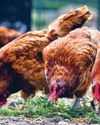
Growing food for Chickens
Mary Larham explores some crops to grow on your holding…
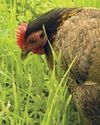
Poultry in the garden – the truth!
Jo-Jane Buxton shares her experiences
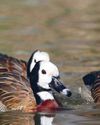
The British Waterfowl Association
Which came first, the goose or the egg?
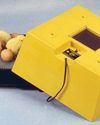
WHY FIT A FAN IN AN INCUBATOR?
Brinsea Products, the Incubation Specialists explain the difference between still air and forced draught
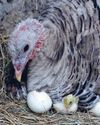
Incubating turkey eggs
Janice Houghton-Wallace looks at broody turkeys and artificial incubation
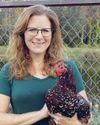
Chicken nesting box herbs
Diana Clauss owns The Blue Feather Farm, in St Cloud, Florida, home to chickens, ducks, goats, and Anatolian Shepherd dogs.
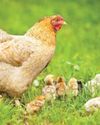
Incubate in January?
Jessica Wombwell says plan the breeding
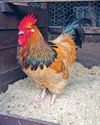
Andy's DIARY
Andy emphases the importance of keeping out damp and wet but allowing ventilation even in cold weather
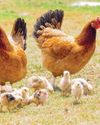
Feeding for Breeding
It may be winter, but as Joanna Palmer, nutritionist for Smallholder Range explains, now’s the time to get your flock in tiptop shape and plan ahead for a successful breeding season next spring.
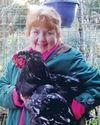
A chick named Cuckoo raised by a duck!
Chris Hammacott and her husband live on a small croft in the Outer Hebrides, they keep a ‘no kill’ flock or rare and rescue sheep which they use to spin and weave rugs. They also share the 8 acres with hens, ducks, cats and 9 rescue pugs.